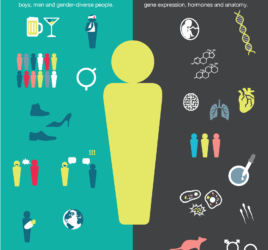
Three years after the Hoffman Report: What have we learned so far from one of the biggest and most recent scandals in psychology?
In October 2015, the American Civil Liberties Union filed a lawsuit on behalf of three torture victims against the psychologists James Mitchell and John Jessen for their commission of torture; cruel, inhuman, and degrading treatment; non-consensual human experimentation; and war crimes (see https://www.aclu.org/cases/salim-v-mitchell-lawsuit-against-psychologists-behind-cia-torture-program). They both were responsible for designing and implementing “enhanced interrogation techniques” for the US Central Intelligence Agency (CIA), which were just recently recognized to represent inhuman and degrading treatment and torture as classified under the US Senate (see https://www.aclu.org/files/assets/SSCIStudyCIAsDetentionInterrogationProgramES.pdf). Their actions demonstrated how professional skills and status of some psychologists intentionally caused psychological and physical harm to individuals, who were not their clients but kept in custody and, further, outside protection of the criminal justice system. However, a larger and more complex issue involving and supported by the largest scientific and professional organisation of psychologists -the American Psychological Association (APA)- was revealed.
“The revelation of the APA’s involvement in a story of dubious and unethical actions tore a crack into the facade of its positive public image.”
Despite warning signs in 2004, when reports by the International Committee of the Red Cross were leaked to the media and revealed the involvement of psychologists in actions that were “tantamount to torture” (see https://www.nytimes.com/2004/11/30/politics/red-cross-finds-detainee-abuse-in-guantanamo.html), it took many years of cover-ups before the investigative reporter James Risen probably triggered the turning point with his book “Pay any Price – Greed, power, and endless war” (Risen, 2014). It uncovered the collusion between the APA leadership and governmental entities in their support of psychologist’ involvement in abusive operations. Subsequently, the APA commissioned an independent investigation of the allegations with special focus on the APA’s issuance of ethical guidelines in 2002 and 2005. For this purpose, the APA engaged David Hoffmann, a former Inspector General, federal prosecutor, and Supreme Court clerk. After the investigation of more than 50.000 documents and the conductance of 200 interviews with 148 people, the independent review report -commonly known as the Hoffman Report- was published in July 2015 (Hoffmann Report, 2015, see http://www.apa.org/independent-review/APA-FINAL-Report-7.2.15.pdf).
“The Hoffman Report revealed extensive details on how leading figures and other members of the APA were compliant with torture, lied and covered up their close relations with the US Department of Defence (DoD), the CIA and other government entities.”
It uncovered the changes in 2002 and 2005 to weaken the association’s ethical guidelines as a result of the influence from these close relationships to allow psychologists to participate in the government’s ”enhanced interrogation programs” after 9/11. These programs referred to techniques such as waterboarding, harsh physical actions as ‘walling’, ‘forced stress positions’, intentional deprivation of necessities such as sleep and a temperature-controlled environment and was authorized from the top: by the president and the Secretary of Defence. According to the report, the key principle motives of the APA were: i) to align and cosy up to the DoD, ii) to falsely present a public image of the APA being engaged and concerned about ethical issues, and iii) to foster the growth of psychology’s interests (Hoffmann Report, 2015).
To understand the last aspect, it should be mentioned that the DoD is one of the largest employers of psychologists in the US and provides millions of dollars in grants or contracts for psychologists. The APA tried to win the primary position from all other health professionals regarding the support of DoD interrogation, to eventually secure its position and produce substantial employments and other financial benefits. Furthermore, the APA also derived considerable advantages from the partnership with the CIA, who paid ten thousands of dollars for the organisation of conferences and refunded participants for travel expenses.
“How could such policy changes have passed seemingly unnoticed?”
The guidelines were designed by an APA’s task force, which issued a report drafted during the relatively short time period of a two and a half-day meeting. The task force members were carefully chosen: the majority in favour of the military and intelligence agencies, having direct connections to interrogations at Guantanamo. Behind the scene, discussions and decisions were prepared and coordinated by the APA Ethics Director and a key DoD official. One week later, the APA Board of Directors accepted and published the report in an emergency session as APA policy, an action normally undertaken by the APA Council of Representatives.
However, one of the task force members, Jean Maria Arrigo, spoke up at APA conventions about her concerns. Despite the instruction not to take notes or speak about the task force, she archived the entire email communication (see https://www.documentcloud.org/documents/1445-e-mails-from-the-american-psychological-associations-task-force-on-ethics-and-national-security#p=1) and sent it to Senate Armed Services Committee (Abel 2009), thereby revealing the way the guidelines were changed. Personal verbal attacks followed, gossip was spread and even threats of legal actions coming from prominent APA leaders were undertaken (see https://www.theguardian.com/law/2015/jul/13/psychologist-torture-doctors-collusion-jean-maria-arrigo). Eventually a decade later, she was personally apologized by the APA and honoured as an anti-torture whistle-blower (see https://www.aclu.org/blog/national-security/torture/psychologists-honor-anti-torture-whistleblower-government-now-its and https://www.apa.org/monitor/2016/04/upfront-award).
Following the revelations by the Hoffman Report, the APA passed an official resolution –forbidding psychologists from participating in interrogations and from being involved in detention operations at Guantanamo Bay and other facilities operating in violation of the international law. As a result, an authority of the US armed forces ordered a recall of psychologists from a wide range of activities with detainees in Guantanamo Bay (New York Times, 2015). Nevertheless, the DoD continued to seek to undo the policy changes and undermine the APA’s new determination (DoD, 2016).
Last August marked the first anniversary of the case against Mitchell and Jessen. After the judge had rejected efforts to dismiss the case and the trial was approaching shortly, the two psychologists agreed to a settlement —the first for a case involving CIA torture.
“Has the APA recovered from that scandal?”
The past president of the Society for the Study of Peace, Conflict and Violence -a subsection of the APA- casts doubts on this. In fact, she warns of a “see no evil” approach and questions if the APA took the necessary steps at all – such as taking responsibility, apologizing to those harmed, making amends, and explaining the public the steps to prevent such misdeeds in future (LoCicero, 2018).
Kenneth Pope, an awardee for professional contribution to public service and ethics, and former APA member-who resigned in 2008 in disagreement with the APA’s ethical approach- appeals psychologists to reflect about their actions and decision as individuals and organizations. Do these reflect professional ethics that protect the public against abuse of professional power, expertise, and practice, and hold members accountable to values beyond self-interest- or do they rather mirror guilt ethics that prioritize members’ interests above public interest, avoid accountability, and try to appear as professional ethics (Pope, 2016a)? Meanwhile, Jean Maria Arrigo is still an active member of the Coalition for Ethical Psychology, an organisation formed in 2006, which continues working to ensure the independence of psychology ethics from government and other interest ties.
“As for our part, the main question remains alike – what have we learned?”
It is doubtable, whether an appropriate acknowledgement is currently possible at all, or information about this recent ethical scandal are too little known. The revelations of the Hoffman Report demonstrate that questions about how psychologists can best serve their profession, what this profession even is, means and does,— are not outdated and continuously challenging.
References
Abel R. (2009) The Healing Professions. In: Law and Anthropology-current legal issues. Volume 12. Freeman M, Napier (Editors). Oxford. Oxford University Press
Costanzo M.A. (2009) The Effects and Effectiveness of Using Torture as an Interrogation Device: Suing Research to Inform the Policy Debate. Social Issues and Policy Review 3(1), 179-210.
Hoffman, D. H., Carter, D. J., Lopez, C. R.V., Benzmiller, H.L., Guo, A. X., Latifi, S. Y., & Craig, D. C. (2015). Report to the Special Committee of the Board of Directors of the American Psychological Association: Independent review relating to APA Ethics Guidelines, national security interrogations, and torture. Chicago, IL: Sidley Austin LLP. Retrieved June 25, 2018f rom: http://www.apa.org/independent-review/APA-FINAL-Report-7.2.15.pdf
LoCicero, A. (2018) Did the APA take responsibility for its failures? Psychology Today. Blog Contribution: https://www.psychologytoday.com/us/blog/paradigm-shift/201804/apa-do-not-take-see-no-evil-approach-torture
O’Mara, S. (2015).Why Torture Doesn’t Work. The Neuroscience of Interrogation. Harvard University Press.
Pope, K.S. (2016). The code not taken: The path from guild ethics to torture and our continuing choices. Canadian Psychology/Psychologie Canadienne. 57(1). 51-59.: http://kspope.com/PsychologyEthics.php
Further literature:
- DemocracyNow (2015). Psychologists Collaborated with CIA & Pentagon on Post-9/11 Torture Program, May Face Ethics Charges. In Goodman, A. (Executive Producer), Daily Show. New York City, Democracy Now.org. Retrieved January 6, 2017 from: https://www.democracynow.org/2015/7/13/psychologists_collaborated_with_cia_pentagon_on
Annotation: The contribution starts from minute: 15.06.
- Eidelson, R. (2010). 10-Year “Psychology, Torture, and the APA” Timeline. Retrieved January 6, 2017, from: http://ethicalpsychology.org/timeline/
Annotation: This interactive timeline documentation shows graphically the involvement of psychologists and the APA in the “war on terror” abuse and torture detainees between the years 2011-2011 which is provided by the Coalition of Ethical Psychology.
- APA resolution. Retrieved June 25, 2018 from: https://www.apa.org/independent-review/psychologists-interrogation.pdf
- New York times 2016: https://www.nytimes.com/2016/01/01/us/pentagon-curbs-use-of-psychologists-with-guantanamo-detainees.html
- DoD letter: https://www.apa.org/news/press/releases/2016/01/dod-response-letter.pdf
- Risen, J. (2014).Pay any price: greed, power, and endless war. New York. Houghton Mifflin Harcourt
- DemocracyNow (2007). https://www.democracynow.org/2007/6/1/the_task_force_report_should_be
Annotation: This contribution is emerged when Dr. Jean Maria Arrigo took her concerns about the strong ties of the task force to the military public at conventions of the APA. Journalist Amy Goodman started a story on the broadcast Democracy Now.
Timeline of APA Policies & Actions related to detainee welfare and professional Ethics in the Context of Interrogation and National Security https://www.apa.org/news/press/statements/interrogations
NOTE: Image by Martin Dittus, licenced under CC BY 2.0.




Thank you Stefanie, for this thought-provoking piece on the ethical conduct of (some of the members of) the APA. Its Ethical Principles of Psychologists and Code of Conduct can be found at http://www.apa.org/ethics/code. it might be worth mentioning that an updated code of conduct for researchers affiliated with Dutch universities was published by the VSNU in 2018: https://www.vsnu.nl/en_gb/research-integrity. Moreover, a code of ethics for research in the behavioral and social sciences was published recently: http://www.nethics.nl/gedragscode-ethical-code. For those involved in psychological research, it can only be beneficial to read these documents.